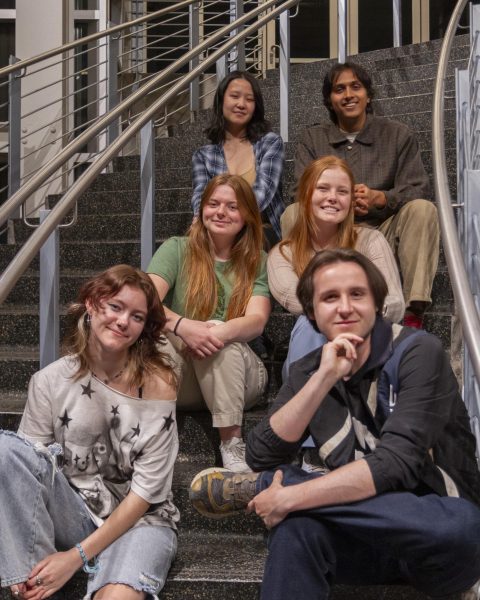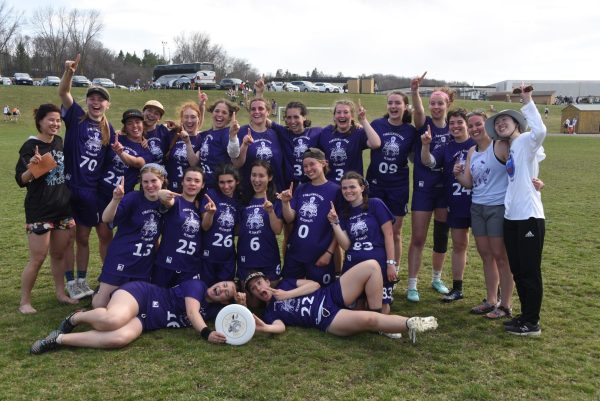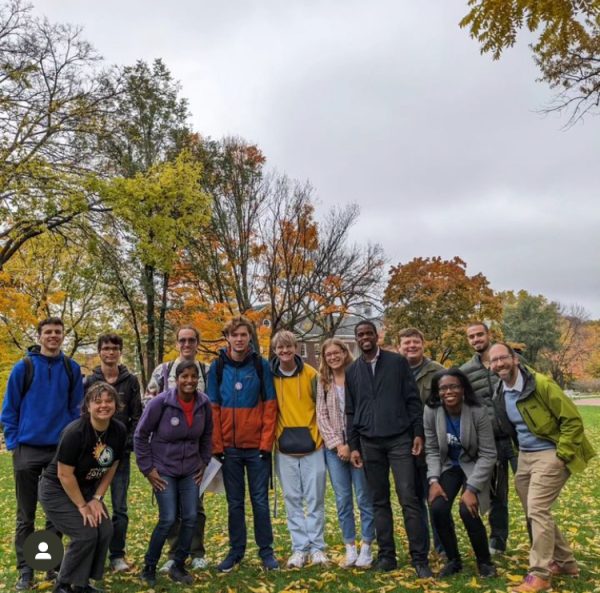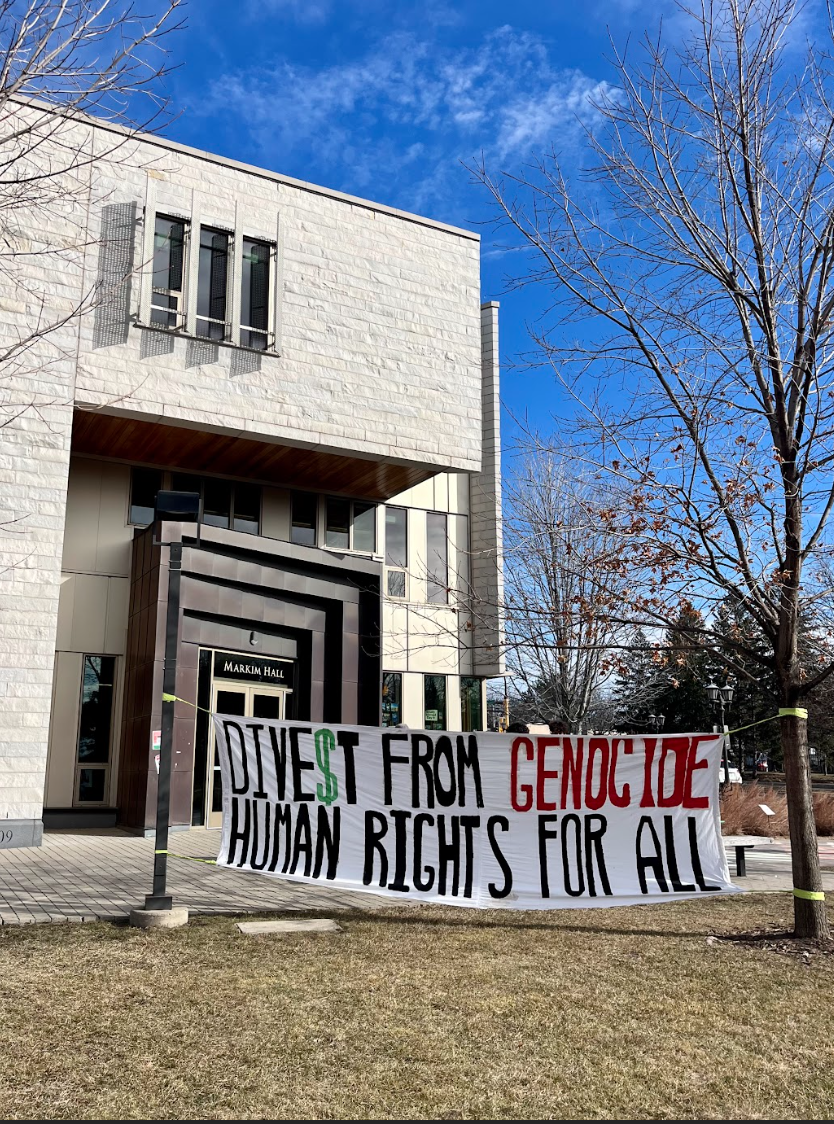As of June 1 of this year, Macalester has begun a new fundraising campaign. It will likely be President Brian Rosenberg’s last at the school.
Rosenberg, who has been at Macalester since 2003, does not currently have any concrete plans for his departure. But that departure is coming—likely soon after the current campaign ends in 2020.
When he does leave, it won’t be for a similar position elsewhere. “I will never be a college president anywhere else,” Rosenberg said. “I could never have the kind of connection to another institution that I have to Macalester.”
College fundraising campaigns typically run six-to-eight years “or more — if they don’t meet the goal, they just keep extending it,” Rosenberg said. Macalester has run similar campaigns in the past, the last of which concluded almost five years ago in January of 2012.
But with the knowledge that Rosenberg’s time at the school is drawing to a close, the Board of Trustees decided at their annual meeting in October to approve a condensed four-year, $100 million campaign. They then backdated the start point to June 1 of this year.
“We’re in what we call the quiet phase, or the leadership phase, of the campaign. That doesn’t mean we’re not talking about [it], it just means that you won’t see it in our alumni magazine, or on our website or anything announcing that we’re in a campaign. That will come in about two years, when we’re in the public phase of the campaign,” said Andrew Brown, the school’s Vice President for Advancement.
Rosenberg said the school wants to raise around 60 percent of the total goal — $60 million in this case — before taking the campaign public.
Most of the donations in the quiet phase of the campaign are from big-money donors. In the public phase, an added emphasis will be placed on increasing the school’s donor base with smaller gifts from more recent graduates.
It’s those gifts that the school is particularly interested in, and, according to MCSG AAC chair Remy Eisendrath ’17, the donor base is in fairly good shape: “The recent alums of the last five, ten, fifteen years donate at a higher rate than older alums,” he said.
But that doesn’t mean Macalester can ease its fundraising efforts. “Typically, a lot of colleges are in what you might call a regular campaign cycle. The typical campaign these days is six, seven, eight years long. So typically you fundraise for seven years, take another break for a few years, and then start another campaign,” Brown said.
“Carleton is in about their seventh campaign. Mac is kind of behind the curve on that. We’re just starting our third campaign. So we’re several cycles behind our peers,” he continued.
“If you don’t continue to fundraise, you lose momentum—and we’ve already started to see some of that. If you go beyond three years, everyone starts to lose momentum.”
The goal of this campaign is primarily what the school is terming as “access and excellence”—making a Macalester education accessible, and providing the resources to ensure that that education is the best it can be.
Financial aid and endowed scholarships will be priorities, along with support for the college’s programs including internships and entrepreneurship.
“This campaign will have less of an impact on the physical structure of the college than it will provide for support for students and faculty members. Right now, the theater is the only physical structure we’re talking about,” Brown said.
The theater building is something of a personal project for Rosenberg. “I taught a First Year Course last year, and they put me in the theater building — I think on purpose — and I got the message.”
The theater building is the only academic building on campus that has not been renovated in recent years—a fact that hasn’t escaped anyone. “I know from students hearing that the theater department will be done it’s very important,” Eisendrath said.
The general outlines for the project are set—but they can still change over the next several years. “You launch these things, and you kind of keep them within a certain set of parameters, but they can kind of take on a life of our own,” Brown said. “Everything kind of depends on donor support.”
The scale of the campaign was tailored to fit Rosenberg’s timeline—with the expectation that he’ll deliver.
“He’s very good,” Brown said. “He’s the fourth college or university president who I’ve worked with, and he’s by the far the best fundraiser.”
“He really embraces that role. He sees how important it is to the future of the college. Great colleges are built largely off of donors and their support. He gets that,” he continued. “His ability to communicate, his listening ability with donors and his ability to articulate his vision for the college is exceptional.”
In a November 10 interview, Rosenberg echoed those thoughts—especially in the direct aftermath of an election that seemingly repudiated much of what Macalester teaches and believes in.
“I am even more committed now — more than I was three days ago — to making sure that Macalester is [in]a position to succeed. What we do here matters a great deal.”













Joe Davies • Sep 11, 2019 at 10:29 am
Hello There. I found your blog using msn. This is a really well written article. I will make sure to bookmark it and return to read more of your useful information. Thanks for the post. I’ll definitely comeback.
Isaac Martin • Sep 10, 2019 at 5:09 am
Your mode of telling the whole thing in this paragraph is genuinely good, every one be capable of simply be aware of it, Thanks a lot.